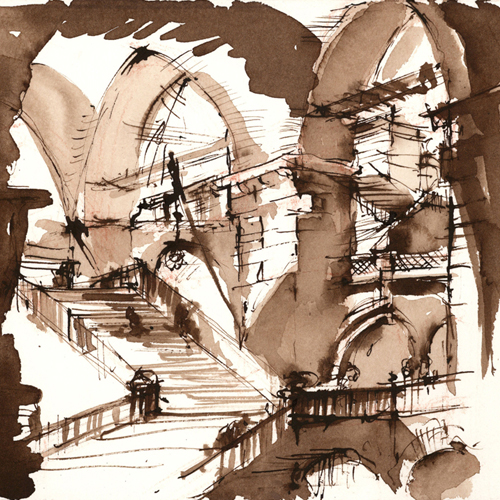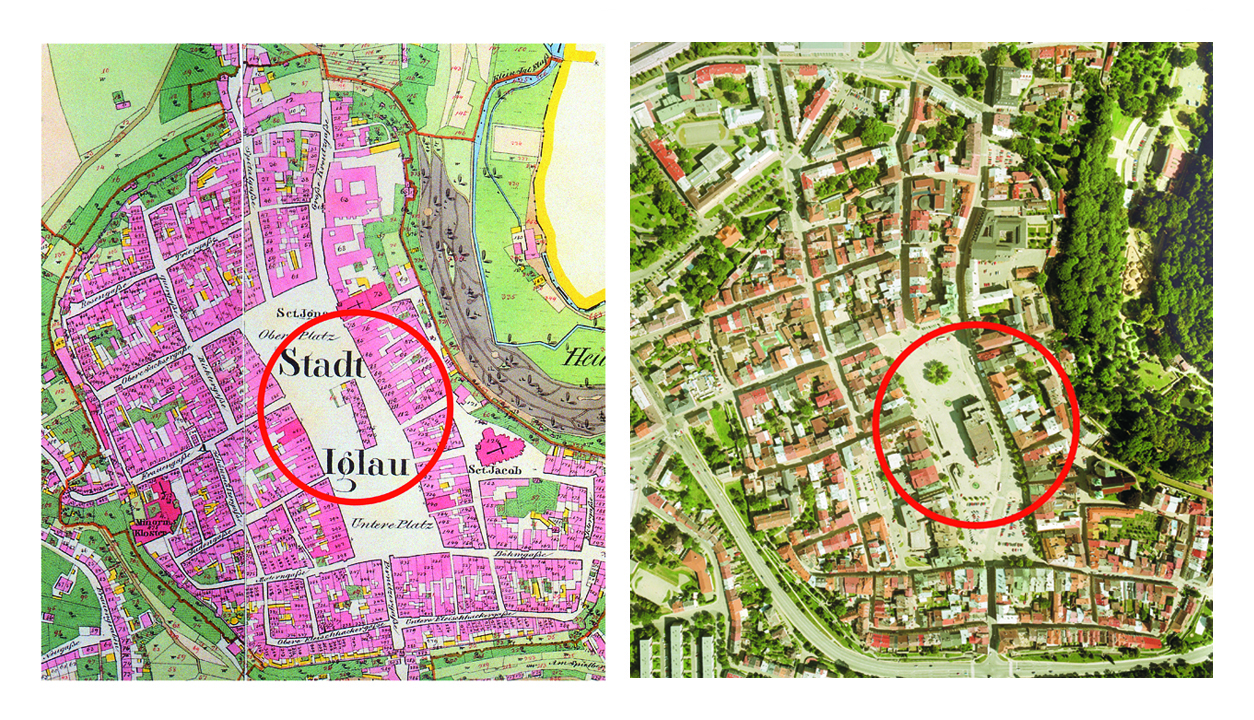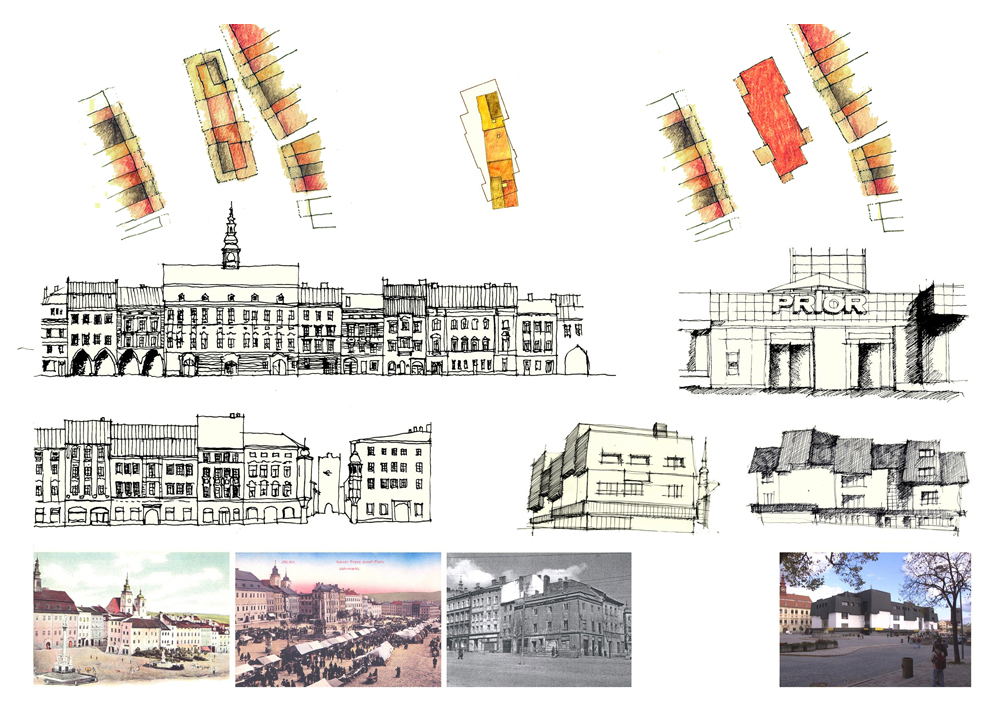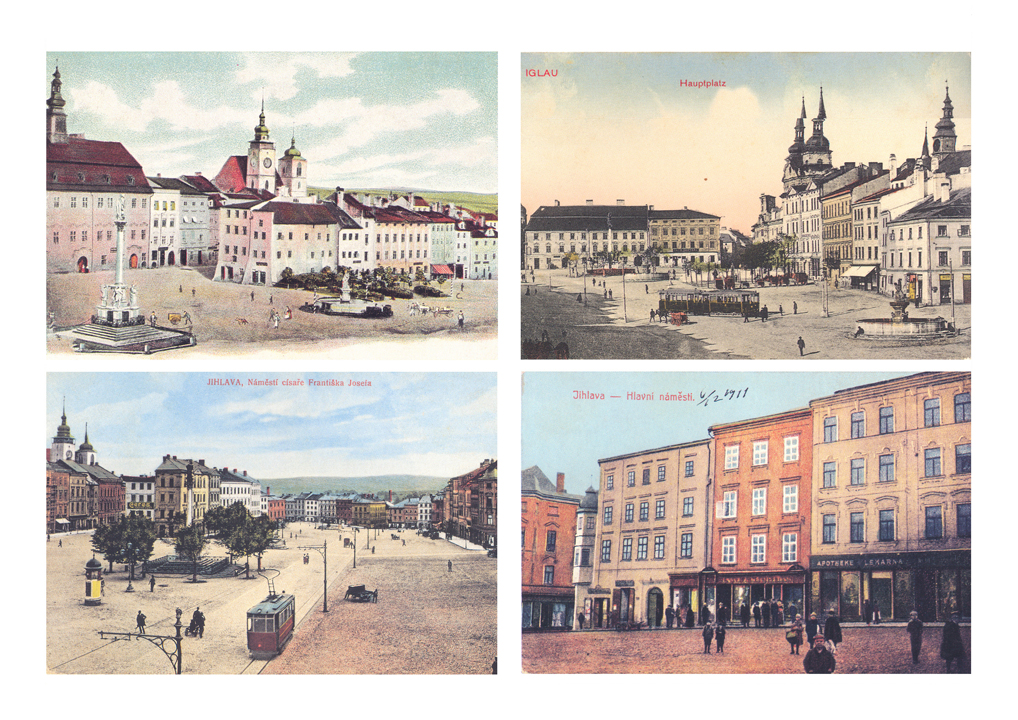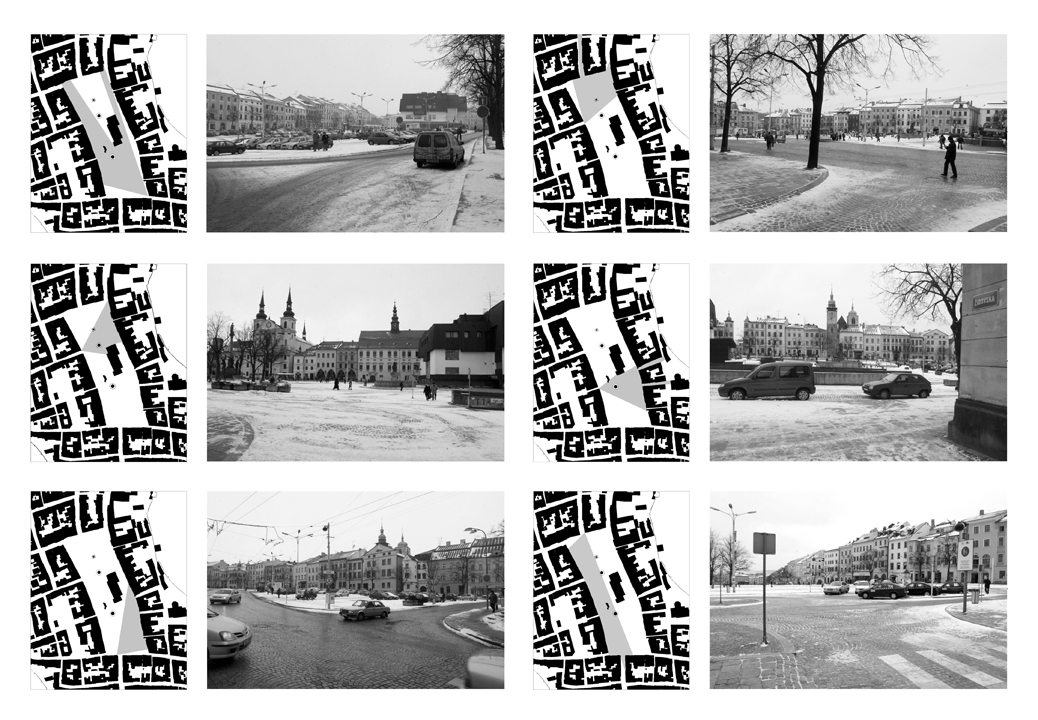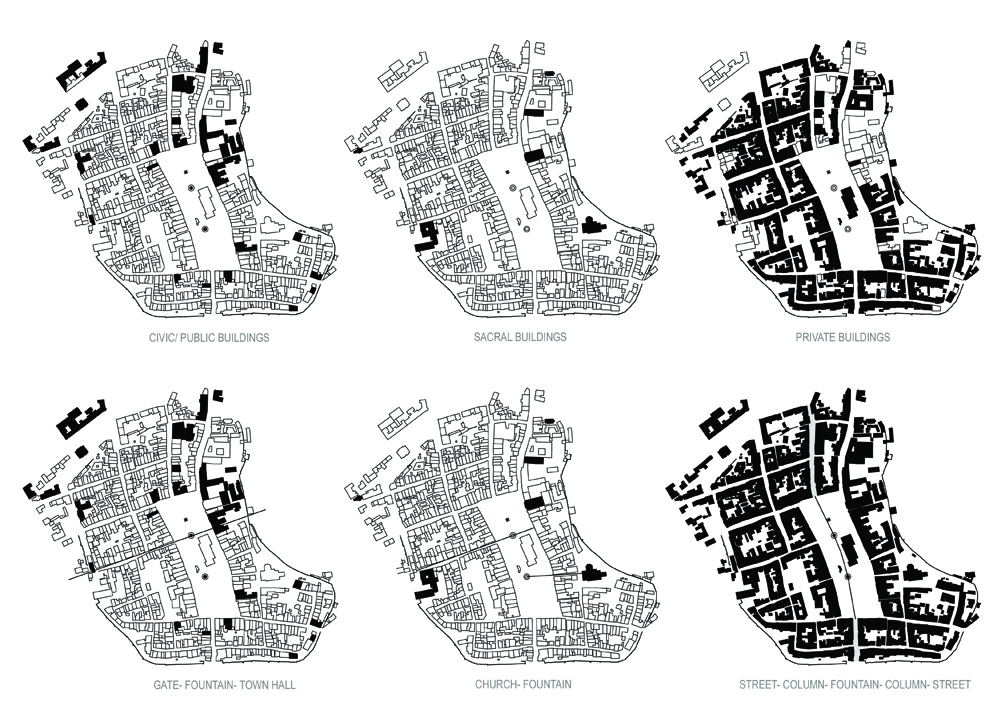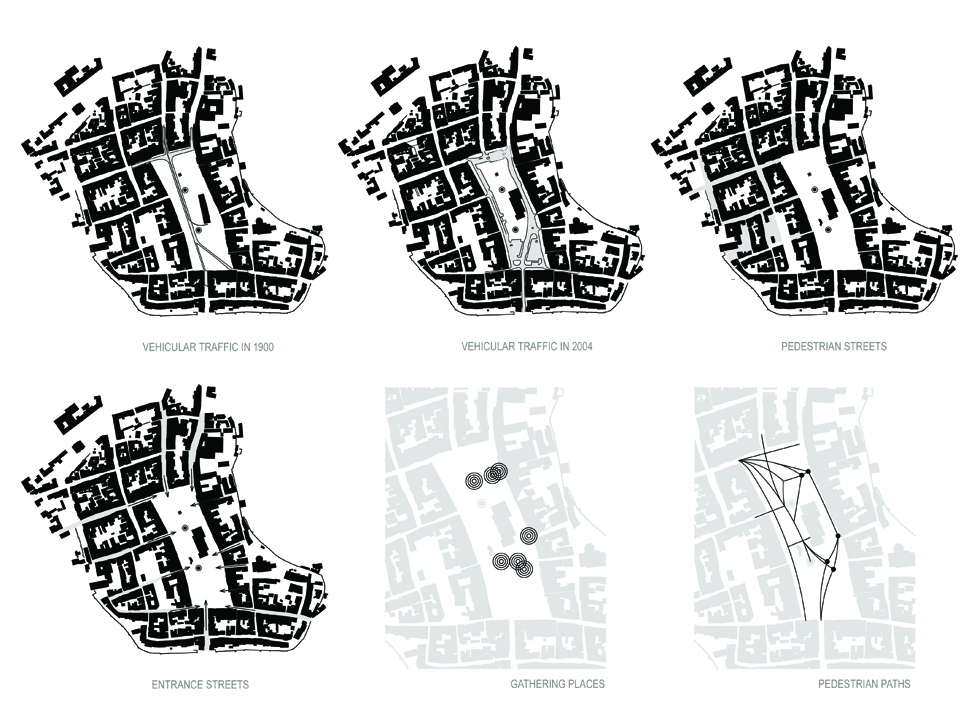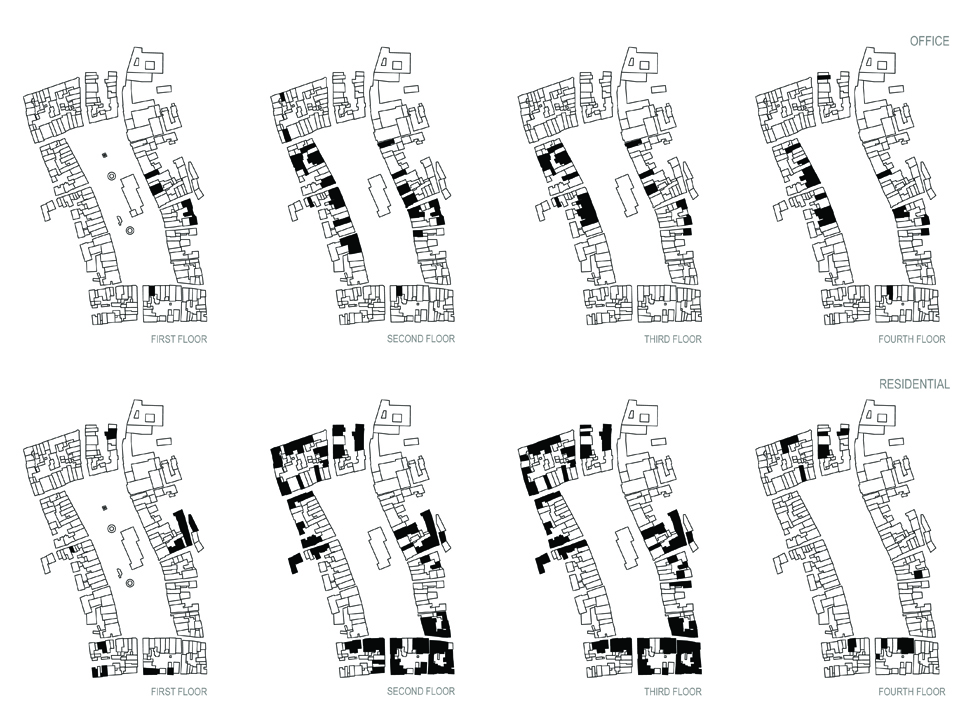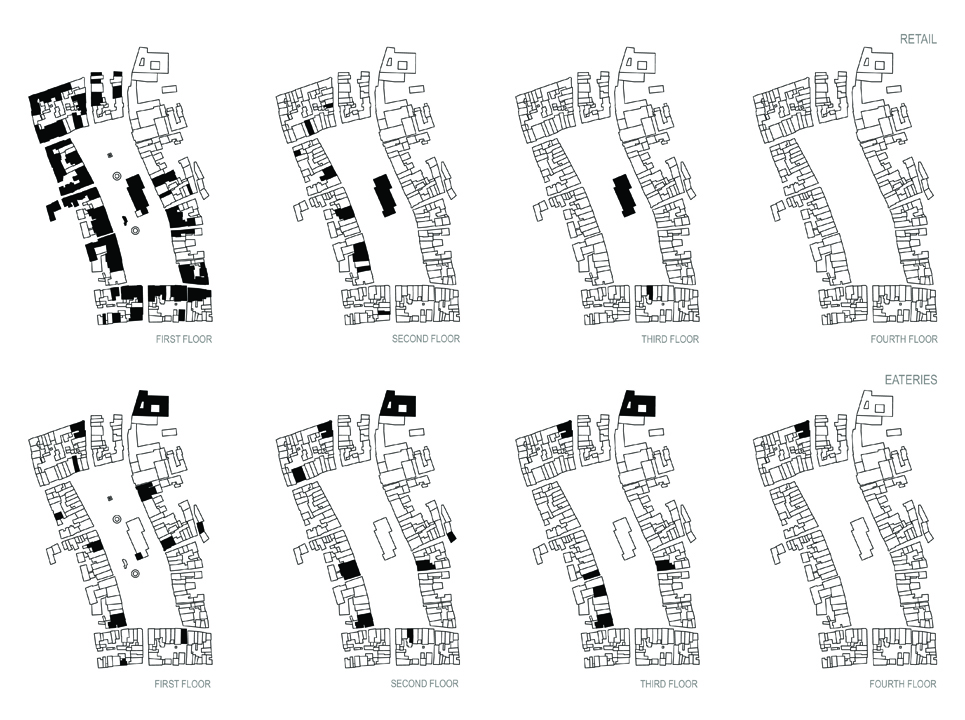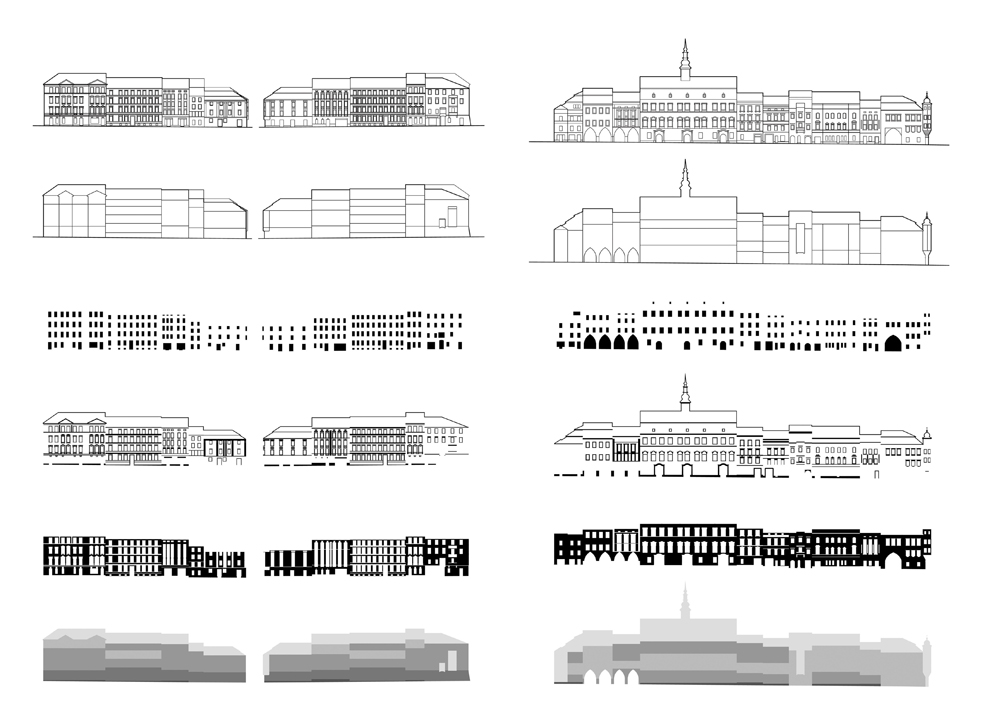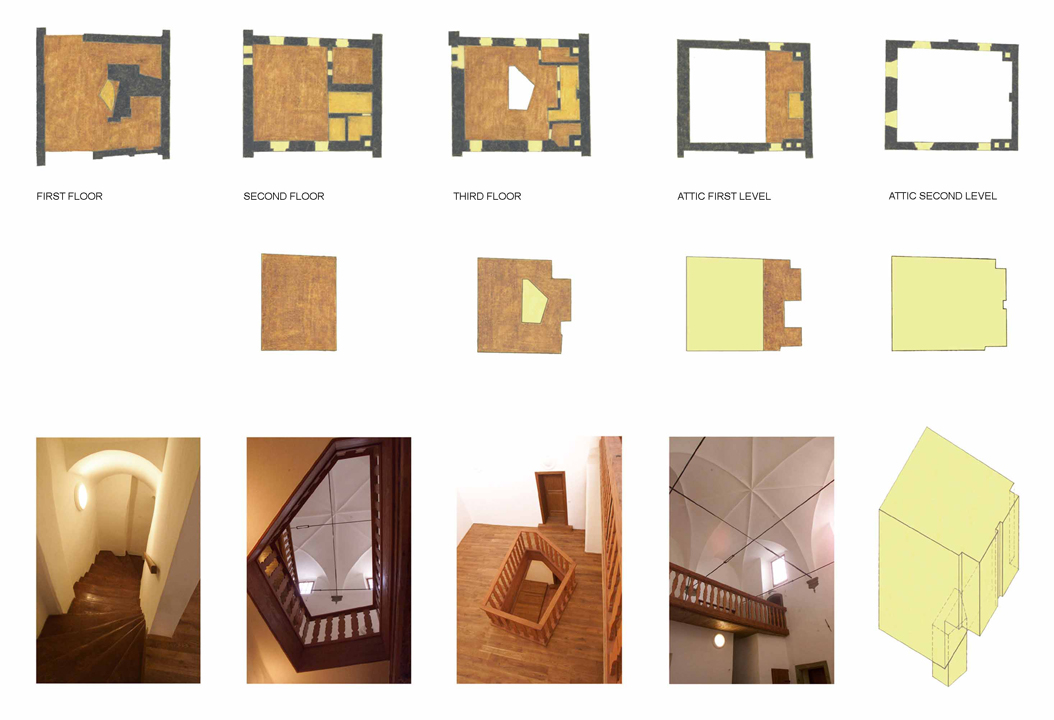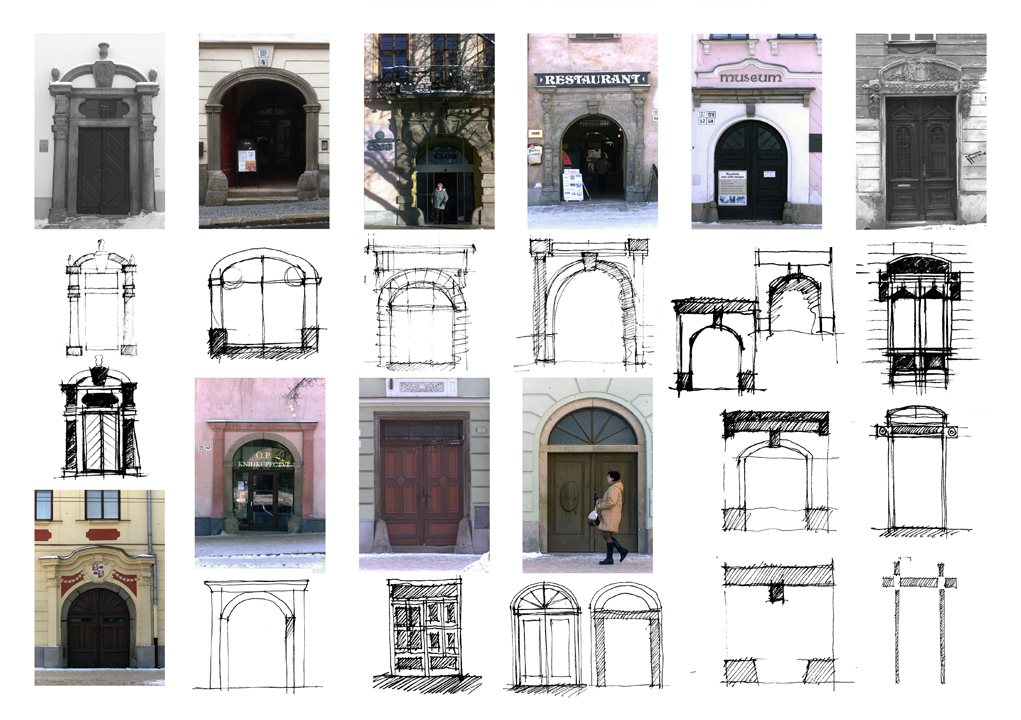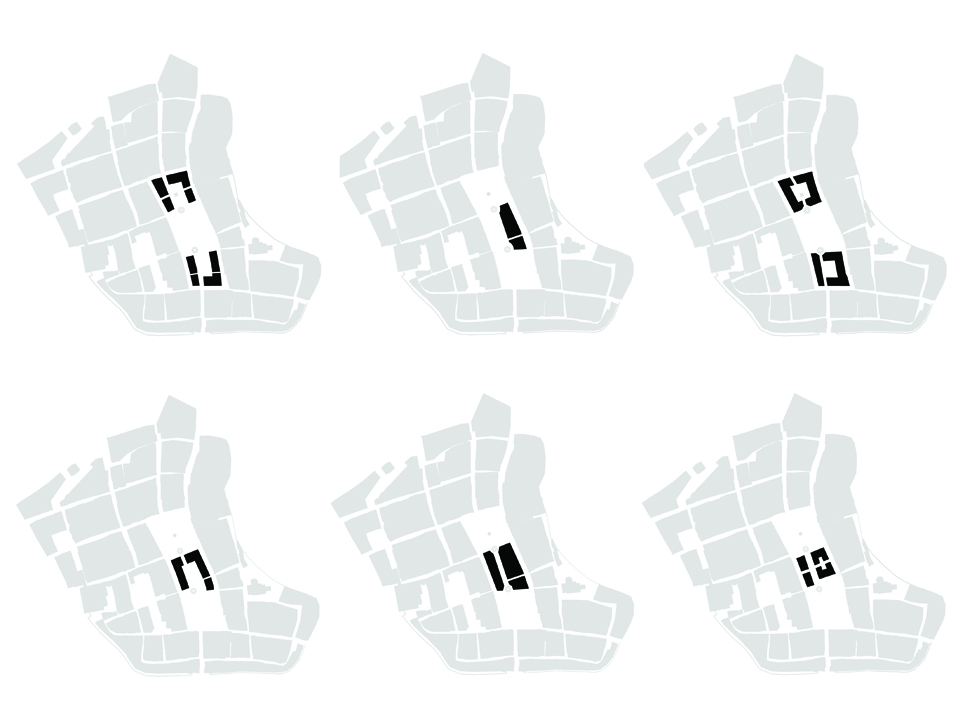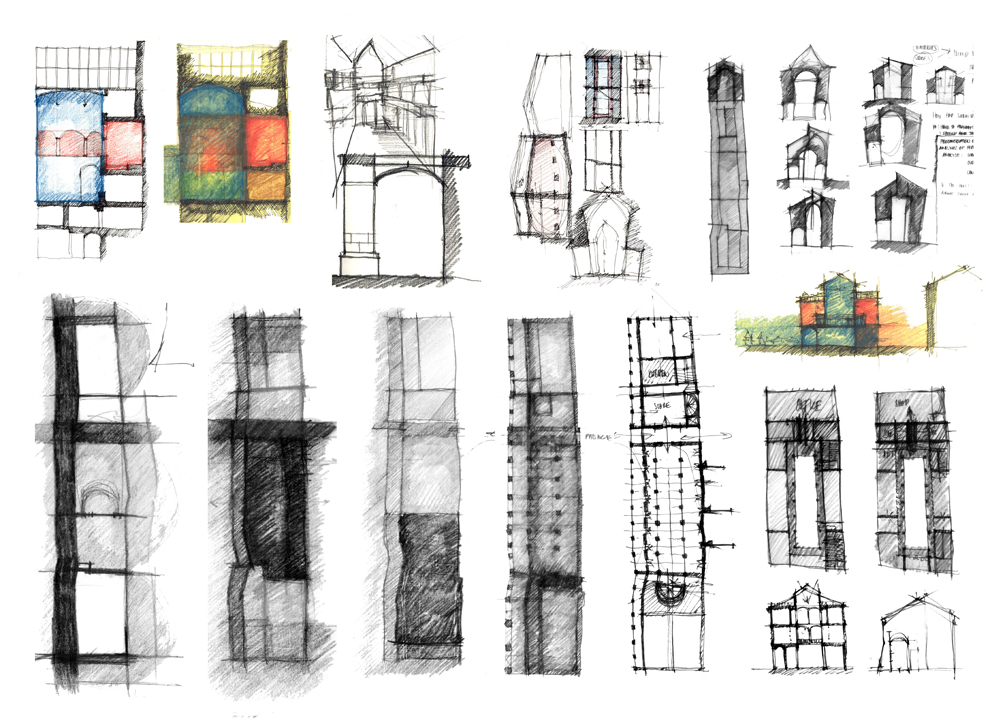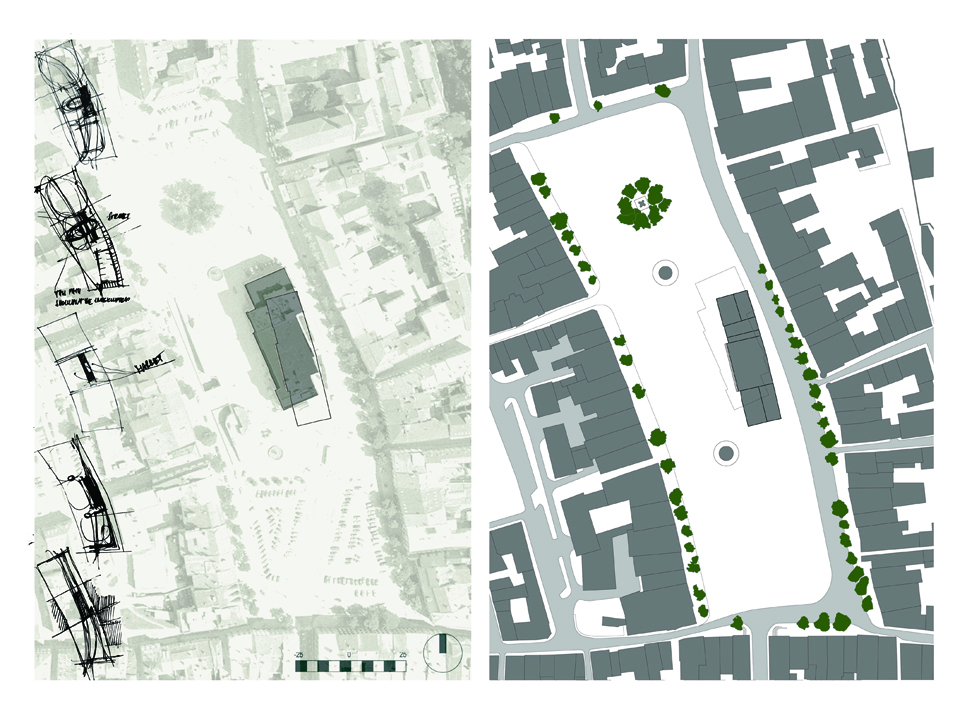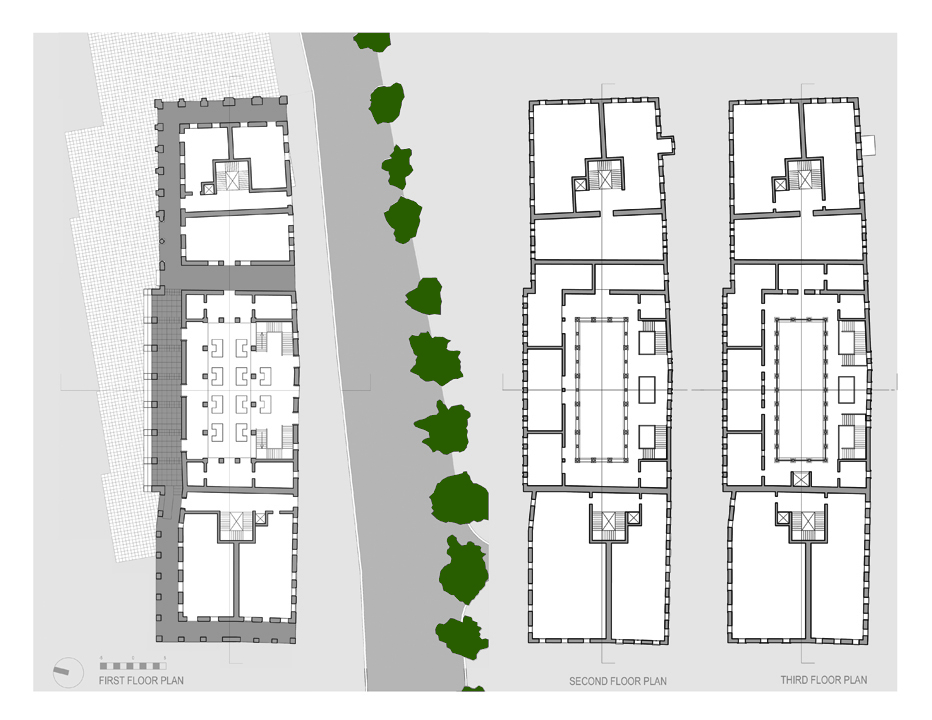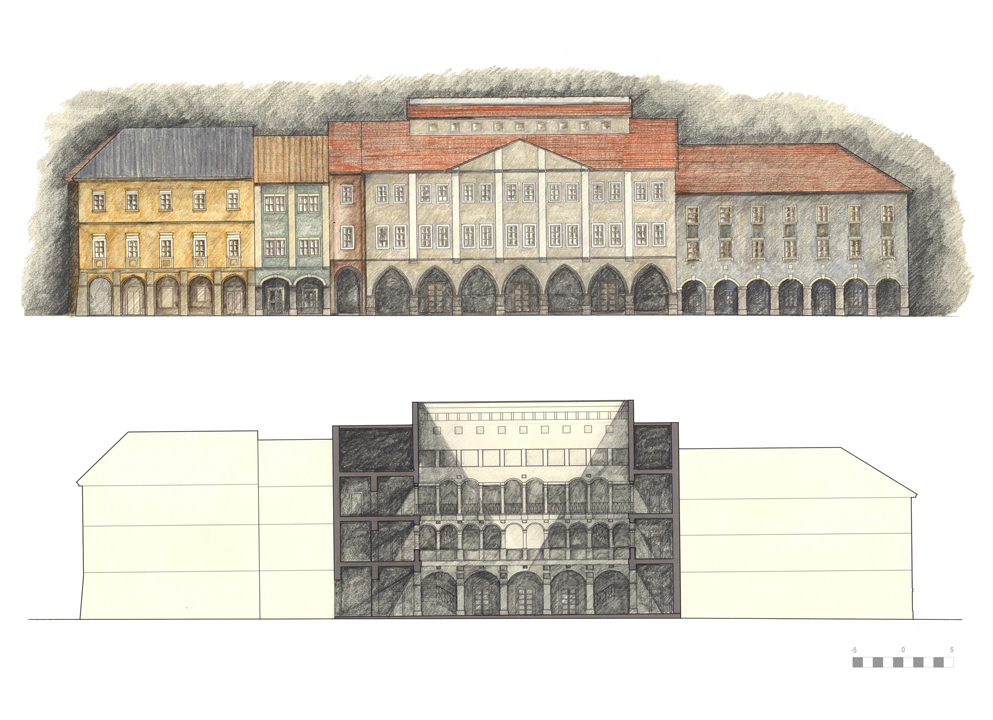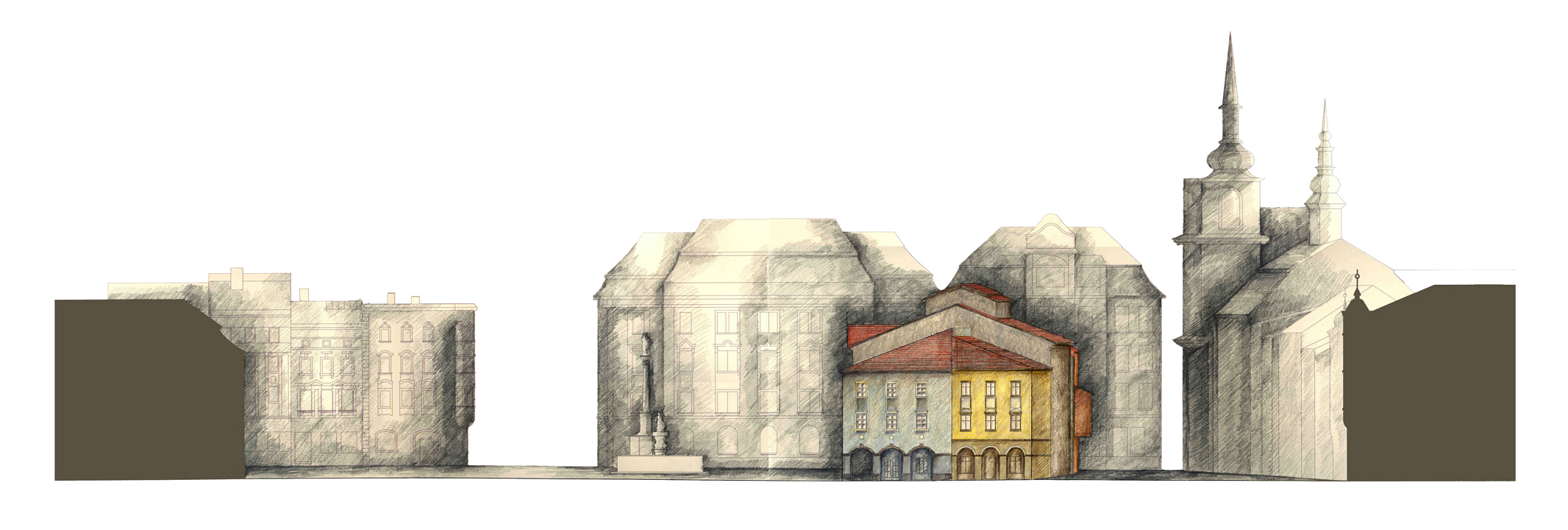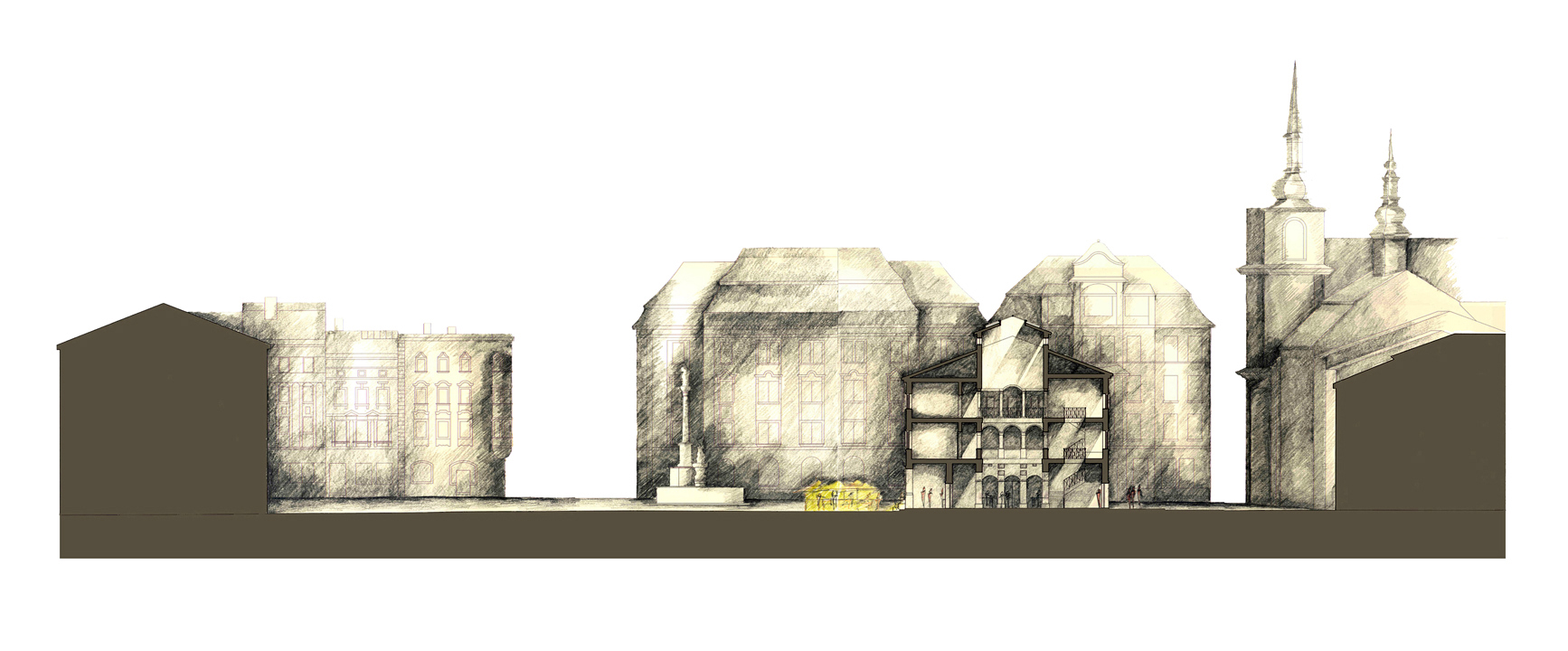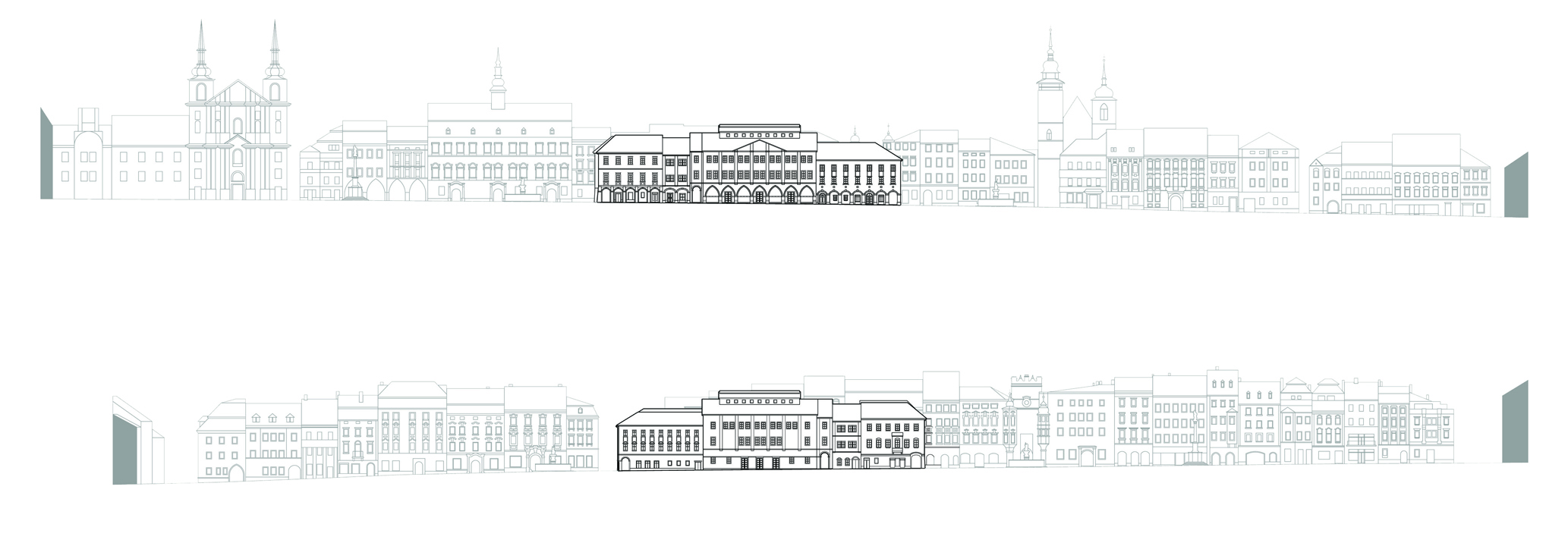This is about the town and the town square of Jihlava. It is about the people, the buildings, and their meaning that shape the identity of the town. Due to political, cultural, and economic conditions, the people and the meanings change and cause the buildings to change also. The urban structure constantly changes and transforms through time.
The transformation and change are characteristic of living organism that continuously renews and replaces its individual cells. The town organically transformed.
During the second half of the 20th century the communist regime had imposed an absolute power over the town. Just as the social, cultural, political, and economic environment was disrupted in the country the urban identity of the town was disrupted as well. Large numbers of people were displaced from the town, individuals lost control over the environment, and unlimited power of the state and ideology ignoring and repressing meaning, history and tradition.
Organic transformation of the urban structure was disrupted.
In order to restore the urban identity of the town, there is a need to re-establish the organic transformation of the urban structure
The process towards the reestablishment requires two main steps:
Reconstruction and careful study of the past condition
Analysis and evaluation of the present condition
The past condition needs to be reconnected with the present condition in order to create the “new”. It should be able to grow and change because the ability to transform will connect it with the future. Transformation is important for the “new” to persist and last through time.
Hampton University
Jihlava, Czech Republic, 2004
Reconstruction of the Town Square
- Categories:
- Share:
